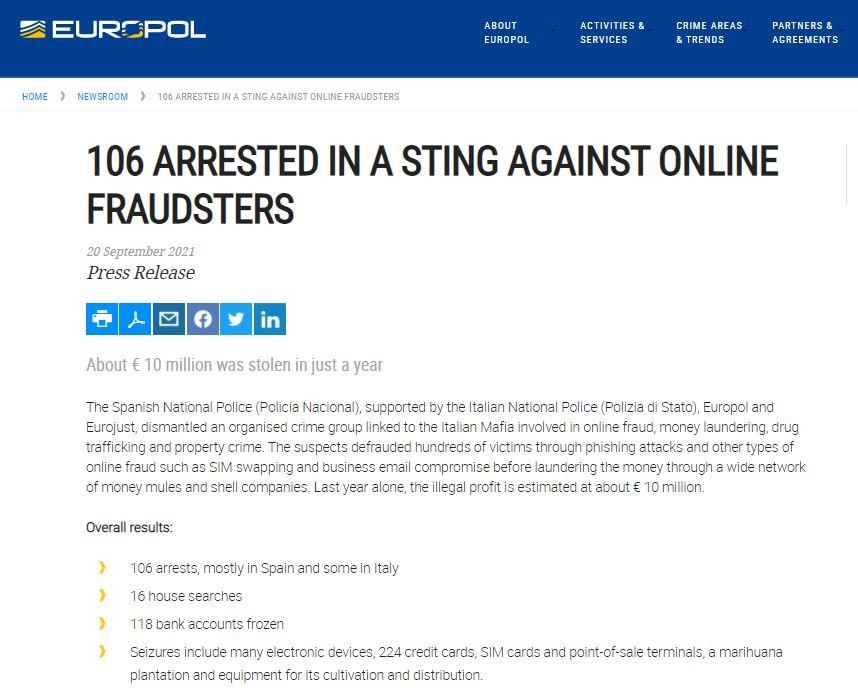An investigation coordinated by Europol led to the dismantling of a complex cybercriminal network linked to the Italian mafia, which operated dozens of frauds that generated losses of up to 10 million Euros during 2020. The agency, in collaboration with law enforcement agencies in Italy and Spain, detected this fraudulent operation operating crimes such as money laundering, drug trafficking and online scams.
The agents in charge made a total of 106 arrests, in addition to searching 16 properties and freezing 118 accounts controlled by this cybercriminal network: “The suspects defrauded hundreds of victims using phishing tactics, spam and other variants of electronic fraud, such as SIM swap attacks and business email compromise (BEC),” says a Europol report.
During the searches, multiple electronic devices were seized, including smartphones, tablets and laptops, as well as dozens of compromised credit cards and point-of-sale terminals.

The justice agencies point out that this cybercriminal group operated using a pyramid scheme, divided into several areas of operation and with a small group in command of these sub divisions. This fraudulent network had the participation of specialists in computer and technology, responsible for the creation and maintenance of its phishing and electronic fraud tools.
An additional sub-division in the pyramid was responsible for recruiting members to make bank deposits and other activities, in addition to supporting money laundering and handling of cryptocurrency transactions.
On the arrested individuals, Europol assures that most are Italian citizens, many of them potentially related to the mafia: “Operating from Tenerife, Spain, the suspects tricked the victims into sending electronic transactions to accounts operated by the fraud leaders; the assets obtained were laundered using a network of shell companies and money mules.”
Europol sent analysts and forensic experts to Spain and Italy during the investigation, as well as funding the work of three Italian specialists to support the Spanish authorities during this investigative campaign.
“Europol’s Joint Cybercrime Action Group (J-CAT) supported the operation. This permanent team is made up of cyber liaison officers from different countries working from the same office on high-profile cybercrime investigations,” Europol concludes.
To learn more about information security risks, malware variants, vulnerabilities and information technologies, feel free to access the International Institute of Cyber Security (IICS) websites.

He is a well-known expert in mobile security and malware analysis. He studied Computer Science at NYU and started working as a cyber security analyst in 2003. He is actively working as an anti-malware expert. He also worked for security companies like Kaspersky Lab. His everyday job includes researching about new malware and cyber security incidents. Also he has deep level of knowledge in mobile security and mobile vulnerabilities.











